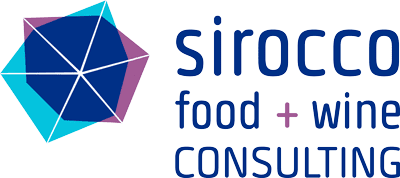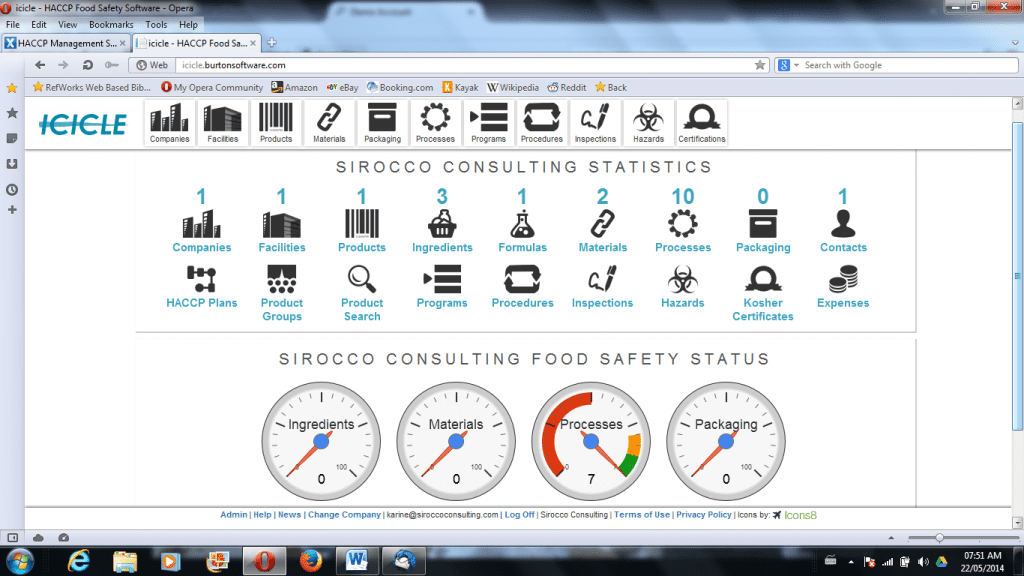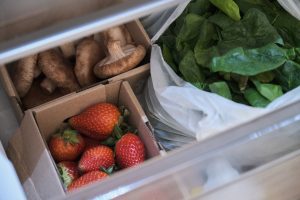Food safety specialists working in industry know that developing and maintaining a HACCP-based food safety program requires a significant amount of administrative paperwork. With pressures to go paperless coupled with increasing regulatory and industry requirements, more and more food businesses are turning to computer solutions to manage food safety and automate document control. Advances in computing technology make it possible to purchase affordable food safety software packages, tools that only a few businesses could afford in the past. A surprisingly large number of e-solutions designed to monitor HACCP plans and other Food Safety Management Systems (FSMS) are now available on the market. Modular or integrated packages fit specific business needs for document control and records management. Intelex’s HACCP management software includes both document and record control with a graphing interface that is used to track important metrics. While HACCP Manager Software (South Coast Business Solutions) is compliant with Global Food Safety Initiative (GFSI) standards, SafetyChain for FoodTM software (Safetychain Software) references the Food Safety Modernization Act (FSMA) and addresses product traceability. Besides on-premise computer solutions, reliable cloud-based applications, available on both PC and tablets, present an affordable option to small food and beverage manufacturers. Amongst such products is Icicle, a food safety application distributed by Vancouver company Burton Software Inc. Last February, the company received a large government grant to commercial the innovative software.
Food safety experts have long predicted that the use of databases would be essential to manage global food safety risks. Information systems in the form of databases are designed to capture, store and retrieve data in a structured fashion.1 Databases also permit data analysis for tracking and trending. When they are integrated with email, these systems allow for effective and secure communication with stakeholders, thereby enabling decision making in real time. They also permit automated tracking and validation of information including change control by approved users through the use of access rules and authenticated signatures. Not only are they readily available and accessible, but also they can be updated and improved easily.
Combined with user-friendly interfaces that reference regulatory requirements and/or international food safety standards, food safety software packages provide a great tool to facilitate the development and the documentation of HACCP plans and pre-requisite programs. Users follow a step-by-step approach to conduct full hazard analyses according to the Codex Critical Control Point (CCP) decision tree. The same structured approach is employed to create Standard Operating Procedures (SOP) for CCP monitoring and pre-requisite programs: users are prompted to enter information sequentially following a template that reflects best industry practices.
Sirocco Food+Wine Consulting recently enjoyed the opportunity to review a demo of Burton Software Inc’s Icicle. For a small annual access fee, the cloud-based software allows the development of a complete and paperless HACCP plan and pre-requisite programs with minimal training. Compliant with Canada FSEP and adaptable to ISO22000 requirements, the software features an inspection menu tab that enables authorised users to generate the equivalent of electronic work orders. Under this menu, users may also customise inspection forms. The system allows the monitoring of multiple HACCP plans specific to one or more manufacturing facilities.
The seamless and intuitive interface links ingredients and processes to food safety hazards and monitoring procedures. The hazard analysis process is conducted systematically using the Codex CCP decision tree questions and also references a risk assessment matrix tool. Pre-requisite program procedures are developed in reference to requirements under the “Programs” menu. These generated SOPs display as a list under “Procedures” and are organised by SOP codes which makes for easy look-up and retrieval of documents. Procedures are also linked to matching inspection templates and reports. This feature is important as it creates an automatic and transparent paperless trail of monitoring activities. Other useful features of the software include built-in validation steps (time, approvals) that ensure the validity and completeness of the inputted information as well as incomplete process alerts and a colourful dashboard of key performance metrics. In a short time, a full HACCP plan is developed and generated which will get updated automatically once changes to documents are made. All activities are time tracked and approved by designated authorities ensuring regulatory compliance and due diligence.
From an economic perspective, the strength of Icicle lies in its small annual service cost ($2500), the vastly reduced cost of document control, the elimination of document printing and the computer-generated paper trail. Moreover, the step-by-step approach to HACCP plan development and SOP creation allows users with little practical knowledge of HACCP to efficiently and intuitively create complete documents following approved industry practices. The innovative interface reinforces the rigorous HACCP based-methodology that is increasingly demanded by government and industry. The mobile software accessible from smart phones and tablets eliminates the need for “approved copies” of the HACCP manual, generating additional cost savings.
It should be noted, however, that the software doesn’t automatically perform an HACCP analysis for a given product category. This is a tool for trained users: a knowledge and understanding of HACCP, product design/process and associated food safety risks are required to effectively use the software.
The application could be improved by adding an internal and external audit menu tab as well as an inspection and audit scheduler. Besides planning and monitoring of HACCP verification activities, the HACCP plan builder could include a section for validation of identified hazards and control limits, a task that is usually missed or not properly documented. This computer software is well suited to small food and beverage manufacturers including small wineries who cannot allocate adequate time to maintain a paper-based program and do not have the expertise to develop document templates. Mobile computing is also an asset when training seasonal staff on SOPs. A paperless and unique copy of the HACCP plan means that there is no risk of procedures being lost. Icicle also provides a uniform and familiar recognised information system platform that is easy to audit internally and externally.
REFERENCES
1- Zwietering, M. H., Schmid, S., Kirk, M., McMeekin, T. A., Ross, T., Baranyi, J., . . . Bowman, J. (2006). Information systems in food safety management. International Journal of Food Microbiology, 112(3), 181-194.





